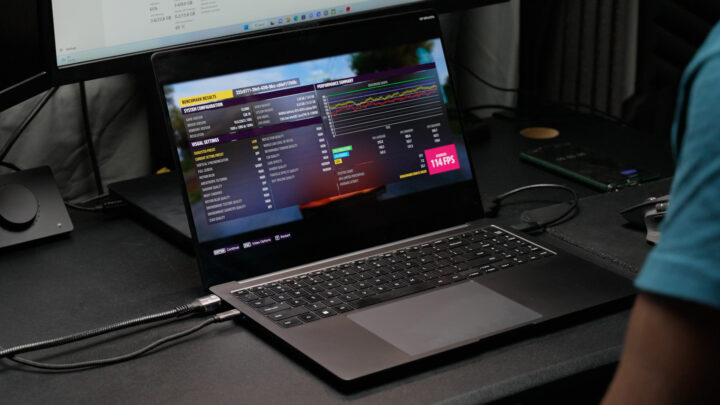Three months ago, the Indian government suddenly restricted imports of laptops, PCs, and tablets in the country for brands that do not have a license. This move was to force brands to start assembling laptops locally. After this sudden move, Apple, Samsung, and some other firms were in a difficult position. However, the government reversed its decision soon.
Samsung can freely import Galaxy laptops and smartphones until September 2024
It is now being reported by Reuters that the Indian government has authorized 110 brands to import laptops, PCs, and tablets in the country. Those brands include big names like Apple, Dell, HP, Lenovo, and Samsung. However, there is now a new system for monitoring imports and shipment numbers. Acer, ASUS, IBM, and Xiaomi are also included in the list under the new “import management system.”
The story continues after our Galaxy Book 3 Pro hands-on video.
After the Indian government’s sudden plan to ban imports of laptops, PCs, and tablets and create a licensing regime, it was heavily criticized by brands and the US government. So, the government walked back on its plan, as explained above. However, it managed to convince Samsung to start assembling laptops (60,000 to 70,000 units annually) locally at the same site in Noida where it makes Galaxy smartphones.
Under the new licensing, companies must declare the number and value of imports on a government web portal. They will then receive an authorization that is valid until September 2024. No one clearly knows what the government’s plan is after September 2024, but it is possible that it will try to strong-arm brands in assembling laptops, PCs, and tablets locally so that the ecosystem can create more jobs in India.
Author’s Note: India wants to be the next big manufacturing hub after China, especially for electronics and automobiles. With that in mind, the Indian government has been offering several tax sops and financial incentives to brands that make their electronic devices locally. For example, Samsung has its biggest smartphone factory globally in Noida, India. The company has also started making OLED panels in the country.
India’s long-term plan is to snatch the manufacturing industry from China and create a manufacturing ecosystem in India. That would increase the country’s GDP and create millions of jobs in the country.


